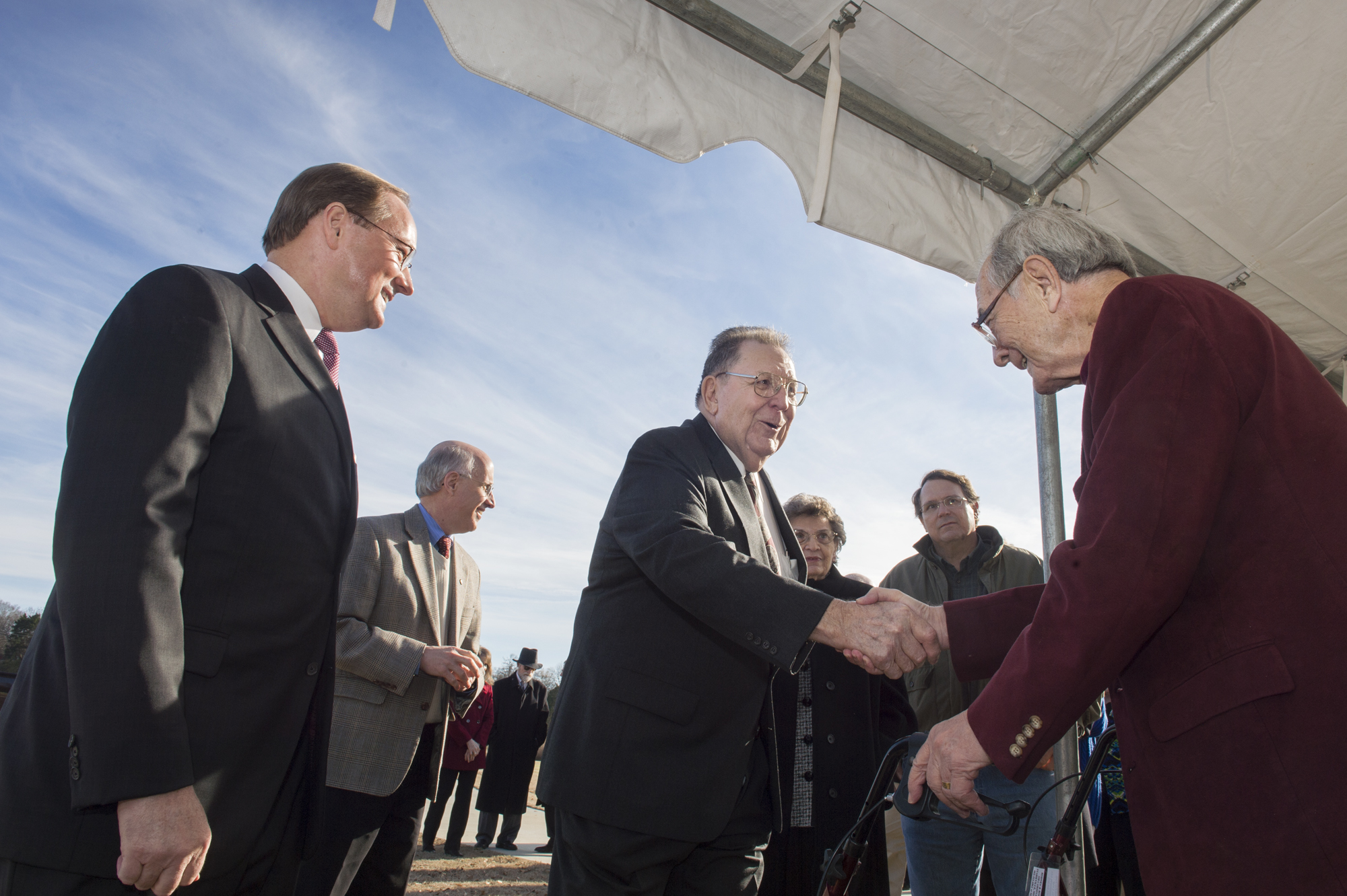Contact: Allison Matthews

Photo by: Megan Bean
Mississippi State University officials today [Dec. 11] dedicated Verner Hurt Blvd., the road entering the Rodney Foil Plant Science Research Center, which also was rededicated during the ceremony recognizing two longtime administrators who have made lasting impacts on agriculture.
MSU President Mark E. Keenum said the occasion was a celebration of the outstanding men whose combined careers included 70 years of service to the university and its Division of Agriculture, Forestry and Veterinary Medicine.
Hurt, who retired in 1996, served as director of the Mississippi Agricultural and Forestry Experiment Station, professor of agricultural economics and head of that department. Keenum said Hurt had a direct impact on his own life as Keenum pursued undergraduate, master's and doctoral degrees in agricultural economics before working for the university as a research associate and later as a faculty member.
Once Keenum joined the staff of U.S. Sen. Thad Cochran, he said he saw first-hand Hurt's direct influence on agricultural issues.
"My personal congratulations to you and your family for all that you've done for Mississippi State University," Keenum said.
He also said that Rodney Foil was one of very few individuals who had held such a significant level of influence over an extended period of time.
Foil retired in 1999 as vice president for MSU's Division of Agriculture, Forestry and Veterinary Medicine. He previously served as head of the forestry department and dean of the School of Forest Resources, as well as associate director and director of MAFES.
After his retirement from MSU, Foil went on to serve the Cooperative State Research, Education and Extension Service for the U.S. Department of Agriculture. He oversaw the CSREES Initiative for Future Agriculture and Food Systems and he served as chair of the CSREES Board of Agriculture. In 2004, he was among the first individuals to be inducted into the CSREES Hall of Fame.
Keenum said Foil's career impacted the lives of thousands. Having one of the finest research stations in the country is a fitting tribute to a man who well understood the role of land-grant institutions for improving the lives of citizens throughout the state and the nation, he said.
Foil responded by thanking those in attendance at the ceremony and adding, "I appreciate those who worked with us, and I appreciate those who continue to work now."
Hurt additionally thanked Keenum, saying the ceremony brought good memories and he appreciates having the connection with Foil, his longtime colleague. Hurt added that he spent the better years of his professional career overlapping in service to the university with Foil, and he also thanked retired university vice president Vance Watson, who also was in attendance, for his contributions to agricultural research.
George Hopper, dean the College of Agriculture and Life Sciences and director of the Forest and Wildlife Research Center, said this year Mississippi set all-time records for agricultural yields. He said while many factors impact agriculture, the land-grant university's missions of research and service have had much to do with advancements in production across the state and nation.
David Shaw, vice president for research and economic development, echoed remarks about the significance of achievements made by Hurt and Foil and by the university components under their leadership.
"We all are indebted to you for the contributions to agriculture you have made," Shaw said.
The new Verner Hurt Blvd. also serves as an entrance to Phase II developments of the Thad Cochran Research, Technology and Economic Development Park which adjoins the Rodney Foil Plant Science Research Center.
For more information about Mississippi State University, see http://www.msstate.edu.